Retro Replay Review
Gameplay
Castle of Terror delivers an old-school graphic adventure experience that hinges on thoughtful exploration and puzzle-solving. Players progress by reading richly detailed scene descriptions—each text block paints a vivid picture of the vampire’s fortress—and then typing one- or two-word commands at the prompt. This simple parser recognizes basic verbs like “take,” “open,” and “attack,” but also responds surprisingly well to compound instructions, allowing you to string together actions such as “unlock door, go north.”
(HEY YOU!! We hope you enjoy! We try not to run ads. So basically, this is a very expensive hobby running this site. Please consider joining us for updates, forums, and more. Network w/ us to make some cash or friends while retro gaming, and you can win some free retro games for posting. Okay, carry on 👍)
The game’s interface strikes a fine balance between accessibility and depth. While newcomers may initially find the text-based parser intimidating, the ability to execute multiple actions in a single line greatly speeds up gameplay once you’ve mastered the syntax. You’ll spend much of your time examining objects, combining inventory items, and solving environmental puzzles to unlock new areas of the castle. This methodical pacing rewards careful reading and experimentation.
Pacing is further enhanced by the animated cut-ins and looping background music that accompany key moments. While the core of the adventure remains text-driven, brief animated sequences pop up when you discover hidden traps or confront skeletal guardians. These flourishes not only break the monotony of reading but also provide visual cues that guide you toward the correct solution. The eerie soundtrack underlines tense passages and helps maintain a constant sense of dread throughout your journey.
Graphics
Although Castle of Terror was released in an era when home computers had limited graphical capabilities, Melbourne House managed to infuse the game with atmospheric visuals that hold up surprisingly well. Static scene illustrations are rendered in moody, high-contrast palettes—gargoyles loom in shadowy corridors, and flickering torches cast dancing patterns against stone walls. These illustrations appear before you type commands, setting a cinematic tone for each new room.
Interspersed among the static backdrops are brief animated sequences. When you trigger a trap, the animation of falling portcullises or snapping jaws jolts you into action. These animations are low-frame-rate by modern standards but feel substantial in the context of a text adventure. They serve as both a reward for progression and a warning to tread carefully in unexplored areas.
The background music, though simple in MIDI-like form, deserves special mention. A looping, minor-key melody accompanies every move, heightening the sense of isolation within the vampire’s domain. It’s an early example of audio design that goes hand-in-hand with on-screen graphics, and it amplifies the tension, especially when you’re low on vital items or racing to undo a deadly enchantment before sunrise.
Story
At its core, Castle of Terror is a classic rescue narrative: you are the daring hero charged with saving a fair maid imprisoned in the vampire’s castle. This straightforward premise quickly deepens as you uncover the tragic history of the vampire lord and the dark rituals conducted in his hidden chamber. Each new revelation adds layers to the storyline, transforming a simple rescue mission into a desperate race against an age-old curse.
Text descriptions do the heavy lifting in building tension and atmosphere. You’ll read about dripping blood stains, echoing footsteps, and walls carved with sinister runes. These passages evoke a palpable sense of dread, making every corridor feel like a potential death trap. The narrative unfolds non-linearly, too; sometimes you must revisit earlier rooms after finding a crucial artifact, which means the castle gradually reveals its secrets as you piece clues together.
Characterization is minimal but effective. Aside from the nameless maid whose plight drives the adventure, you encounter diary pages, cryptic inscriptions, and the occasional ghostly whisper. These elements fill out the backstory and humanize the supernatural threat. By the final confrontation, the vampire lord feels like a genuine antagonist rather than a generic monster, thanks to the lore you uncover along the way.
Overall Experience
Castle of Terror stands out as a well-crafted blend of text adventure and basic animation. Its strength lies in the marriage of detailed prose with atmospheric visuals and music. This combination creates an engaging experience that both challenges your wits and rewards your curiosity. If you appreciate methodical puzzle design and a haunting setting, the game delivers in spades.
However, patience is key. The text parser can occasionally misinterpret your inputs, leading to frustrating trial-and-error sessions. Inventory management requires juggling limited slots, and backtracking through previously explored rooms can feel repetitive until you’ve internalized the castle’s layout. That said, these quirks contribute to the old-school charm, reminding players of a time when computer adventures demanded careful reading and persistence.
For retro gamers and lovers of gothic horror alike, Castle of Terror offers a memorable journey into darkness. Its modest animations and looping score provide a refreshing twist on the traditional text-adventure formula, while the richly described environment and layered narrative sustain suspense from start to finish. Whether you’re seeking a nostalgic throwback or your first foray into interactive fiction, this vampire-themed quest is well worth exploring.
 Retro Replay Retro Replay gaming reviews, news, emulation, geek stuff and more!
Retro Replay Retro Replay gaming reviews, news, emulation, geek stuff and more!
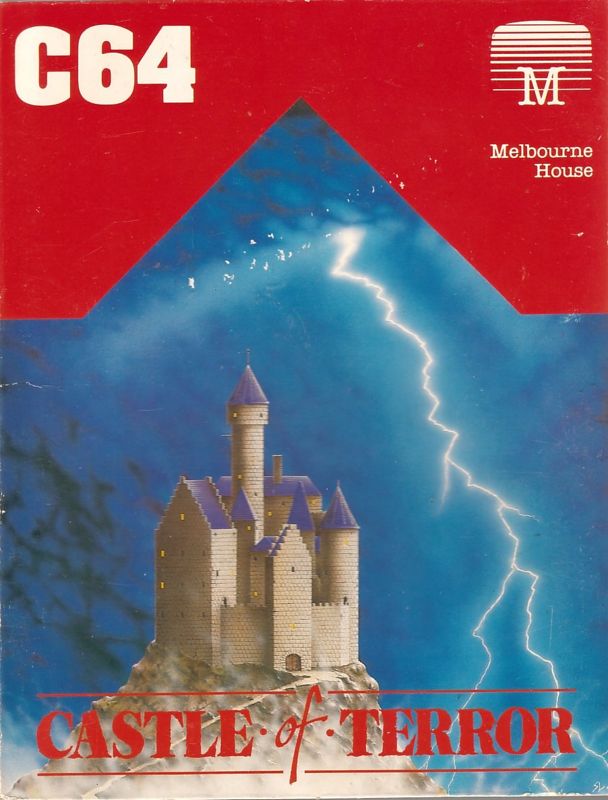
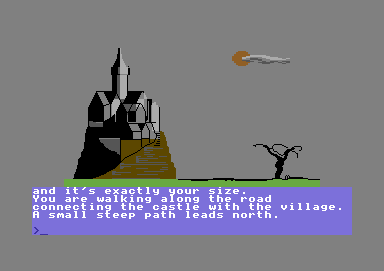
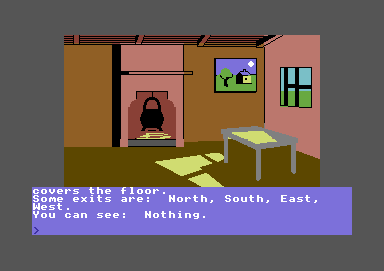
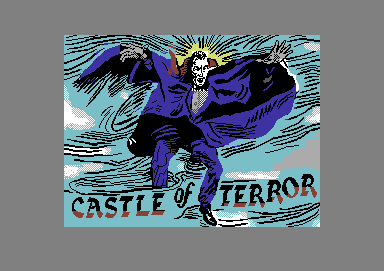

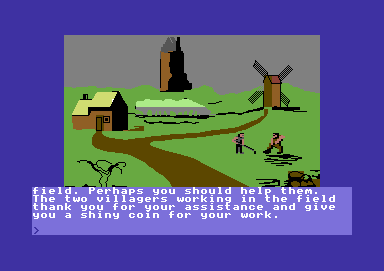



Reviews
There are no reviews yet.